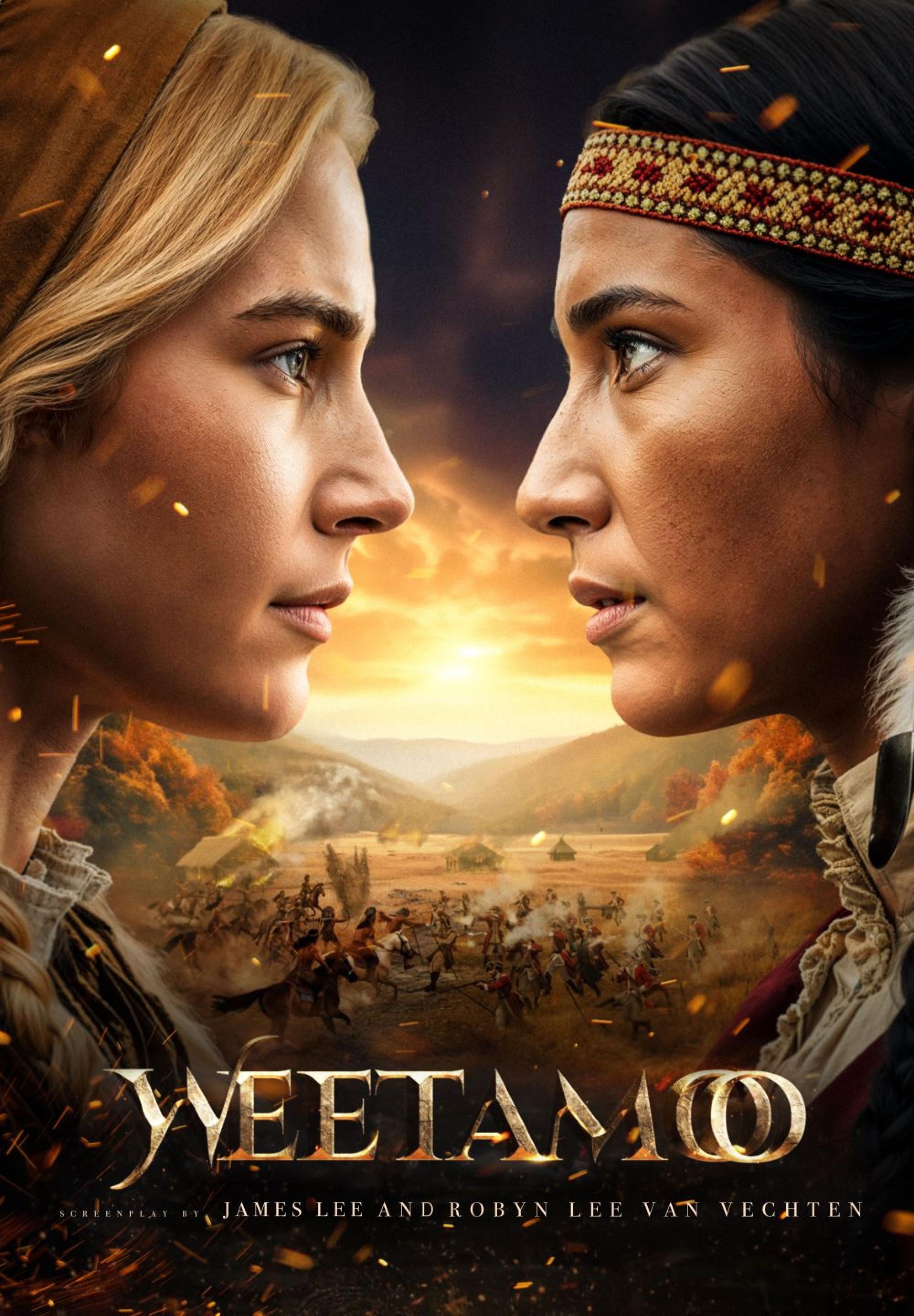
Synopsis/Details
Weetamoo's story takes place during the 150-year tumultuous but largely forgotten years between the Pilgrims landing at Plymouth and the start of the American revolution.
During those turbulent years the ever-growing number of English settlers, driven by their insatiable greed, began to elbow their way inland, often using underhanded methods to rob the Native people of their land. The tensions between the two cultures build until it erupts into what is known today as King Philips war.
Weetamoo, Chief of the Pocasset tribe, is forced into the war when her brother in-law, King Philip, known to his people as Metacom, Chief of the Wampanoags, fights back against the English Puritans.
Weetamoo is a tough, intelligent and highly respected leader of her people and mother to a one-year-old son named Mukki. She is both bitter at the English for inciting a war and toward Metacom who she believes could have prevented it.
To gain allies, Weetamoo marries Quinnapin of the Narragansett tribe and together they and the two united tribes fight an epic but losing battle against the English militia led by the cruel, former pirate, Captain Mosely in what is known today as the great swamp fight. Weetamoo, Quinnapin and the survivors are forced to run.
Paralleling these events is the story of Mary Rowlandson, the wife of the minister of the frontier town of Lancaster, Massachusetts. A position of high rank and privilege in Puritan Society. Mary's sanctimonious attitude toward the native people, driven by religious zeal, is shown by her contempt toward her native servant Hanina who she often mistreats.
The war comes to Mary's doorstep when her town is attacked by Metacom's warriors. She and her daughter, Sarah, are badly wounded and taken captive and force marched through the snow to the Native town of Menemeset. The brutal march through the wilderness becomes even more so when 6-year-old Sarah dies of her wounds.
Weetamoo and Mary's stories converge when they both reach Menemeset. Mary is placed into the custody of Weetamoo where she is made to serve a stern no-nonsense mistress just as Hanina was made to serve her.
Mary, still badly wounded, struggles to adapt to her new reality as she works long hours for Weetamoo who's culture she doesn't understand. Mary takes some solace when Quinnapin gives her a Bible. She spends every spare moment reading it and it gives her the strength to carry on.
Weetamoo and Mary's life gets uopended once more when they are forced to abandon Menemeset and flee deeper into the wilderness when they learn that the evil Capt. Mosely and his militia are marching to Menemeset to attack them.
During this long winter march through the snow, Mary, Weetamoo and the refugees suffer from severe hunger and intense cold as Quinnapin and his warriors attack Mosely to draw them away.
During this miserable march Mary begins to understand and empathize with Weetamoo when she sees her struggle to lead her people while being a mother to her one-year-old child. Now when she reads the scriptures in her Bible she understands their true meaning. She allows the passages to guide her and make her a better person.
Knowing that Mary has lost a child in the war, Weetamoo also begins to understand Mary's grief when her own child, Mukki, gets sick and dies.
United in their grief, their respect for each other grows as they work together, struggling to survive the harsh winter as they continue to flee from the relentless Capt. Mosely.
The tide of war starts to turn against the natives and Weetamoo leads the refugees to the Native town of Wachuset where she is reunited with Quinnapin and Metacom. It is here that Mary learns that she may be freed if the English can pay Metacom's high ransom.
Weetamoo defies Metacom when he refuses to release Mary despite having received the ransom. Together they flee into the forest, as they are pursued by Metacom, to the agreed upon meeting place with the English where Mary is finally freed.
Running low on food and gunpowder, Weetamoo and Quinnapin return to their land to retrieve hidden corn but are attacked by militia. Weetamoo is badly wounded but escapes. Quinnapin and the rest of the refugees are captured.
Weetamoo comes to a sad end when she is killed trying to swim across a river which borders the land that was taken from her.
Quinnapin, with other native leaders is executed by hanging at Boston common. Most of the captured refugees are sold into slavery to work in the sugar cane field in the Caribbean.
The epilogue shows us that Mary has written a book about her experience that will become a classic American captivity story.
Story & Logistics
Story Conclusion:
Bitter-sweet
Linear Structure:
Linear
Cast Size:
Many
Locations:
Many
Characters
Lead Role Ages:
Female Adult
Hero Type:
Unfortunate
Villian Type:
Bully
Advanced
Equality & Diversity:
Minority Protagonist
Time Period:
Early modern period
Country:
United States of America (USA)
Time of Year:
Winter


